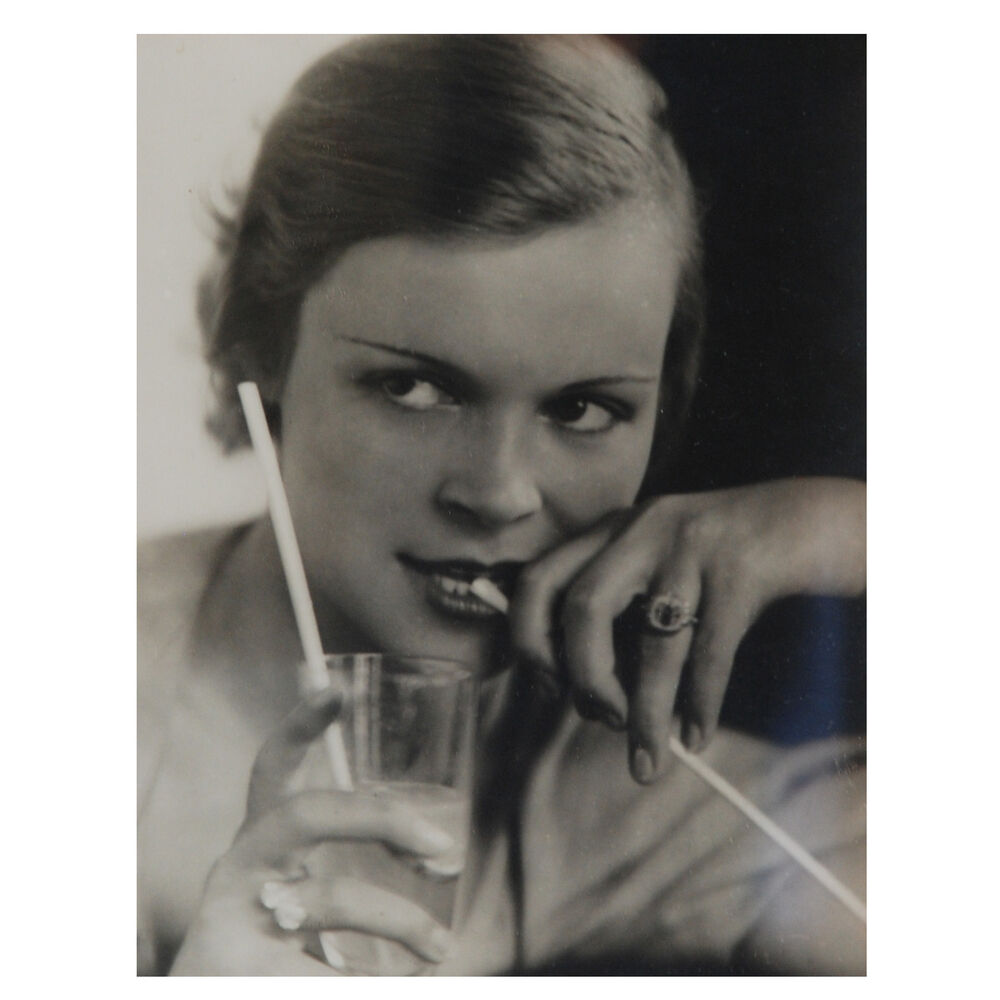
Portrett/reklamebilde av filmskuepillerinnen Ali Ghito, 1932
Lotte Jacobi
1896 - 1990
Silver Gelatin Print. 21.8 x 16.6 cm.
© Lotte Jacobi
Om fotografen
Johanna Alexandra "Lotte" Jacobi was a German-American photographer.
Born in Prussia (now Poland), but spent parts of her life in Berlin (1925-1935), New York City (1935-1955), and New Hampshire (1955-1990). Her portraits of celebrated subjects included Albert Einstein, Thomas Mann, Robert Frost, Marc Chagall, Eleanor Roosevelt, Alfred Stieglitz, J.D. Salinger, Paul Robeson, May Sarton, Pauline Koner, Berenice Abbott and Edward Steichen.
She studied literature and art history at the Royal Academy in Poznań from 1912 to 1917 and completed formal artistic training at the Bavarian State Academy of Photography and the University of Munich (1925 – 1927). Jacobi entered the family photography business in 1927. During this same period she began her professional work as a photographer, represented by Schostal Photo Agency (Agentur Schostal) and she also produced four films, the most important being Portrait of the Artist, a study of Josef Scharl. From October 1932 to January 1933, she traveled to the Soviet Union, in particular to Tajikistan and Uzbekistan, taking photographs of what she saw. She returned to Berlin in February 1933, one month after Hitler came to power. As persecution against Jews increased, she left Germany with her son, arriving in September 1935 in New York City. Nearly all of her early work was lost when she immigrated. Jacobi and her sister, Ruth Jacobi Roth, opened a studio in Manhattan.
In 1940, Jacobi married Erich Reiss, a distinguished German publisher and writer, a marriage that lasted until his death in 1951. During this time, she continued portrait photography at her studio, while also experimenting with photogenics: a cameraless photography in which she exposed photosensitive paper to light to create abstract images. In 1955, Jacobi left New York and moved to Deering, New Hampshire, a move that changed her life. There she opened a new studio, where she both continued her own work and displayed works by other artists. She became interested in politics and was a fervent Democrat, representing New Hampshire at the Democratic National Convention in 1980. She traveled extensively and enjoyed new-found fame in the 1970s and 1980s.
Jacobi died May 6, 1990 at the age of 93. She bequeathed 47,000 negatives to the Lotte Jacobi Archives established at the University of New Hampshire. This record of 20th century history revealed in the faces of the artists, world leaders, intelligentsia, and ordinary people of America and Europe.
Lotte Jacobi